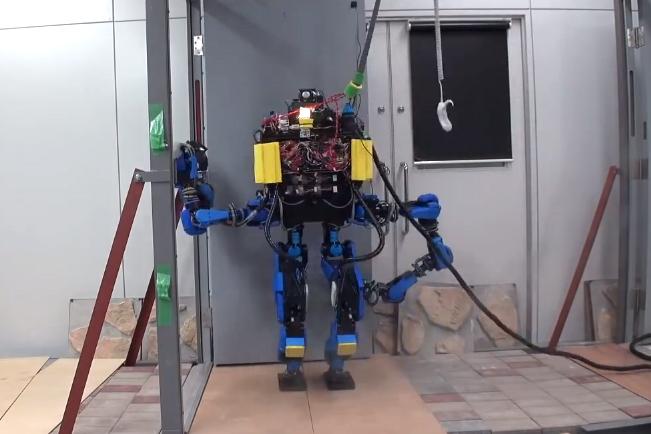
The DARPA Robotics Challenge Trials, which saw teams of experts from around the world descend on a Florida racetrack over the weekend to battle it out for a place in next year’s final, has been won by Japanese team Schaft, a company recently acquired by Google.
Sixteen teams with robots designed to provide help as part of response efforts following natural or man-made disasters battled it out across eight challenging tasks, each hoping to make it to the 2014 finals where a $2 million grand prize will be awarded by the Defense Advanced Research Projects Agency (DARPA).
Tokyo-based Schaft performed ahead of its rivals in half of the challenges laid out for it at the Homestead Miami Speedway site, which included walking across uneven terrain, climbing a ladder, and clearing away debris.
Schaft, a 167-cm, 209-pound bipedal robot (shown above), scored 27 out of a possible 32 points in the various tasks, beating its closest rival – the Atlas robot developed by Boston Dynamics and controlled with software from IHMC Robotics – by seven points. Carnegie Mellon University’s CMU Highly Intelligent Mobile Platform (CHIMP) robot came third with 18 points, while the MIT-controlled Atlas robot finished in fourth place with 16 points. The top eight teams can go forward to next year’s finals taking place a year from now.

You can check out the Schaft robot performing its eight tasks in the video below.
According to Adam Jacoff, a robotics research engineer with the National Institutes of Standards and Technology who helped design and develop the tasks, the DARPA Robotics Challenge Trials event is “one of the biggest robotics evaluations on Earth and dwarf many military robot tests, both in scale of ambition and the actual effort involved.”
Google, for one, will be delighted at the outstanding performances given by Schaft and robots developed by Boston Dynamics, as the Web giant announced just last week that it had acquired the two companies. Google has been taking an increasing interest in robotics, this year buying at least eight companies operating in the field. Though it has said little about its long-term robotics-based plans, DT’s Geoff Duncan recently offered up some thoughts on where Google might be going with its high-tech machinery.
[via Gizmodo]


